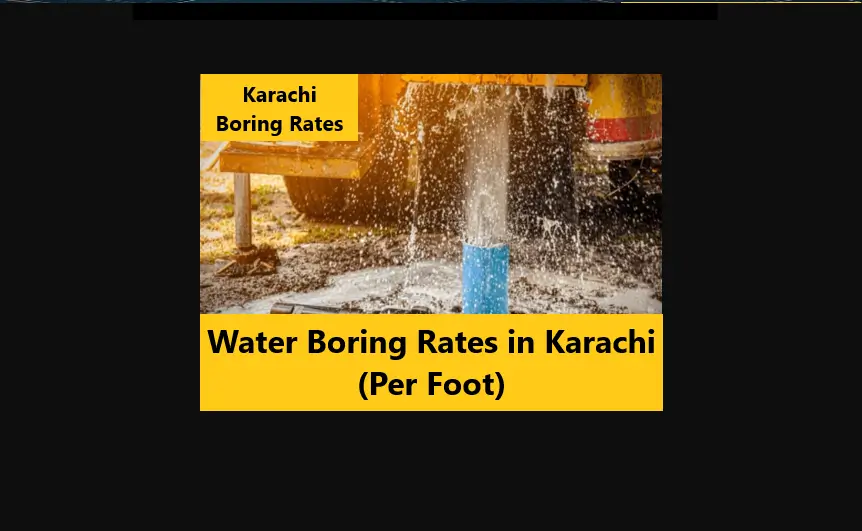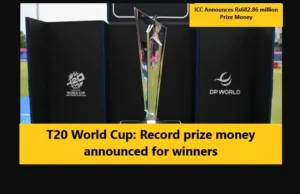Water Boring Rates in Karachi (Per Foot) – Check Details
Water Boring Rates in Karachi (Per Foot) – Check Details.
Karachi’s Escalating Water Crisis: A Comprehensive Overview
Karachi, Pakistan’s largest city with a population exceeding 20 million, is grappling with a severe water crisis.
The city’s water supply of approximately 550 million gallons per day (MGD) starkly contrasts with the demand of over 1200 MGD.
This dire situation stems from several factors including mismanaged sewage systems, inadequate urban planning, overcrowding, insufficient funding, corruption, and mismanagement.
Read More: Groundwater Management System for Agriculture Yield
The rapid population growth and climate change further exacerbate the crisis.
Increasing Dependence on Groundwater Boring
What is Groundwater Boring?
In response to the acute water shortage, many Karachi residents are resorting to groundwater extraction, commonly known as water boring. This process involves drilling into the earth to access water stored in underground aquifers. It serves as a temporary solution to the water scarcity but comes with varying costs based on the depth and diameter of the borehole.
Current Water Boring Rates in Karachi
Rates for an 8-Inch Diameter Bore
- First 600 feet: Rs. 600 per foot
- 600 to 800 feet: Rs. 800 per foot
- 800 to 1,000 feet: Rs. 1,000 per foot
The costs increase for bore diameters expanded to 12 inches or 15 inches, making it crucial for residents to be aware of these expenses to make informed decisions.
Addressing the Root Causes
While groundwater extraction provides a short-term solution, addressing the underlying causes of Karachi’s water crisis is essential for sustainable water management. Key areas of focus include:
- Improving Urban Planning: Better urban planning can help manage the city’s resources more efficiently.
- Efficient Sewage Management: Proper sewage systems can prevent contamination and wastage of water resources.
- Securing Funding: Adequate funding is necessary to upgrade infrastructure and improve water supply systems.
- Combating Corruption: Reducing corruption can ensure that resources are used effectively and reach those in need.
Looking Ahead
As Karachi’s water crisis continues, the demand for groundwater boring is expected to rise. However, sustainable solutions must be pursued to ensure the long-term availability of water. By improving urban planning, managing sewage systems efficiently, securing funding, and combating corruption, Karachi can move towards a more stable water supply system.
Conclusion
Karachi’s water crisis is a multifaceted issue requiring immediate and long-term solutions. While groundwater boring offers a temporary respite, addressing the root causes is crucial for sustainable water management. Awareness and informed decision-making can help residents navigate the current challenges and contribute to long-term solutions.
For more detailed information on Karachi’s water crisis, visit the Karachi Water and Sewerage Board.
Note: The information above might not be accepted 100%. Please verify from your own sources. We will not be responsible for any kind of loss due to our content.
For more news, please visit Munafa Marketing.




